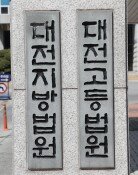US Rate Cuts to Help Korean Market in Near Term
US Rate Cuts to Help Korean Market in Near Term
Posted December. 18, 2008 07:26,
The record U.S. interest rate cuts are expected to directly and indirectly affect Koreas financial market and interest rate policies.
The weakening dollar accompanied by the rate cut and the U.S. governments strong will to boost the economy will positively affect Koreas financial market over the short term.
Changes in the dollars value do not immediately affect that of the won. As the weakening greenback discourages investors from purchasing more dollar assets, however, it helps the won-dollar rate to stabilize and restore foreign confidence in Koreas stock market.
Seong Jin-gyeong, head of market strategy at Daishin Securities, said, A modest fall in the dollars value will positively affect the overall global stock market. Most of all, it can encourage investors to invest in risky assets such as the currencies of emerging economies, so more liquidity will be injected into the stock markets of emerging economies.
The Bank of Korea has room to further cut its benchmark interest rate of three percent, which is already at a record low. At the same time, however, it also feels pressured to conduct a cut given high market expectations.
An official of the central bank said, We feel relieved since foreign investors cannot take advantage of the interest rate gap between Korea and other nations, and the won-dollar exchange rate will not grow further even if we make an additional rate cut. Theoretically, we can lower the target rate to the level of the liquidity trap, at which the monetary authority cannot stimulate the market with traditional monetary tools.
The U.S. Federal Reserve Board said it will use quantitative easing policy along with rate cuts to provide more liquidity for the market. The Feds movement will also affect the Bank of Korea.
The Fed has given up its conventional principle of purchasing only short-term papers, which bear no risk, in buying risky commercial papers. It could also buy long-term papers and government bonds.
The Bank of Korea is highly likely to follow the Feds adoption of quantitative easing measures while lowering the target rate and purchasing commercial papers. This could help ease the credit crunch since it helps the monetary authority to provide much-needed liquidity to relevant sectors instead of forcing a hurried rate cut.
The Feds measures will make a positive impact on Koreas financial market in the near term, but could invite difficulties later.
Jeon Hyo-chan, senior researcher at Samsung Economic Research Institute, said, Besides the target rate, we have more pending issues such as the U.S. plan to rescue the auto industry. The U.S. government is unable to spend lavishly to save the economy."
"If the Feds recent announcements fail to stabilize the market, global financial markets could see the Feds last-ditch solutions as ineffective and face bigger difficulties.
parky@donga.com





![“배달 시키면 버렸는데”…피자 가운데 ‘그것’ 200% 활용 꿀팁 [알쓸톡]](https://dimg.donga.com/c/138/175/90/1/wps/NEWS/IMAGE/2026/01/07/133111146.3.png)

